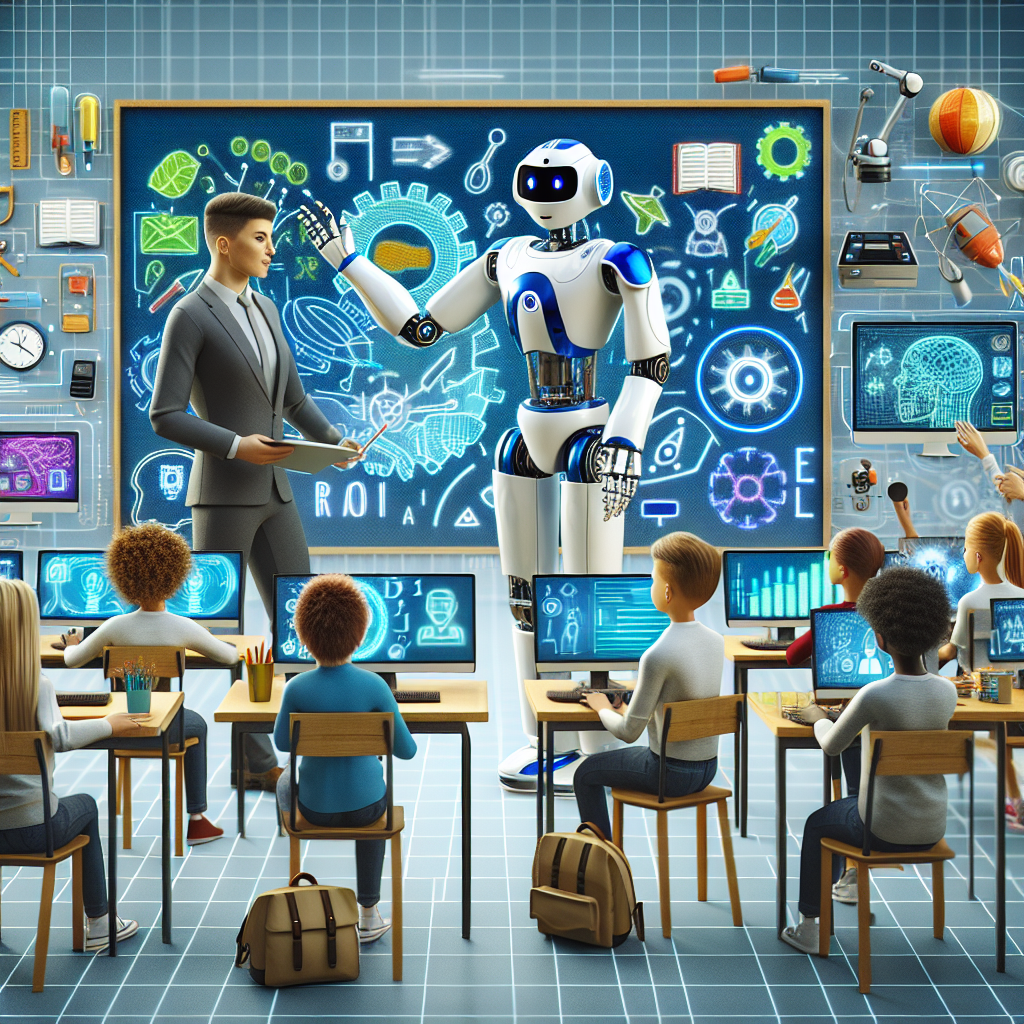Artificial Intelligence (AI) has revolutionized the way we learn and teach, making lessons more engaging and memorable through experiential learning. By incorporating AI technologies into educational settings, educators can create immersive and personalized learning experiences that cater to the individual needs of each student.
Experiential learning is a hands-on, interactive approach to education that focuses on real-world experiences and activities. It allows students to learn by doing, rather than just passively receiving information. By combining experiential learning with AI, educators can create dynamic and interactive lessons that engage students and make learning more enjoyable.
One way that AI can enhance experiential learning is through personalized learning experiences. AI technologies can analyze student data and provide personalized recommendations for each student based on their learning style, interests, and strengths. This allows educators to tailor lessons to meet the unique needs of each student, making learning more effective and engaging.
AI can also be used to create immersive and interactive learning experiences through virtual reality (VR) and augmented reality (AR) technologies. These technologies allow students to explore virtual environments and interact with digital objects in a way that is not possible in a traditional classroom setting. By creating virtual simulations of real-world scenarios, educators can help students develop practical skills and knowledge in a safe and controlled environment.
Another way that AI can enhance experiential learning is through the use of chatbots and virtual assistants. These AI-powered tools can provide students with instant feedback and support, helping them to stay motivated and engaged in their learning. Chatbots can also be used to facilitate group discussions and collaborative learning activities, allowing students to work together to solve problems and complete tasks.
One of the key benefits of using AI in experiential learning is its ability to make lessons more memorable. By creating interactive and engaging learning experiences, students are more likely to retain the information they have learned and apply it in real-world situations. This can lead to improved academic performance and a deeper understanding of the subject matter.
In addition to enhancing the learning experience, AI can also help educators track student progress and identify areas where students may need additional support. By analyzing student data, educators can gain insights into how students are learning and where they may be struggling. This allows educators to provide targeted interventions and support to help students succeed.
Overall, AI has the potential to revolutionize the way we approach education and make lessons more memorable through experiential learning. By incorporating AI technologies into educational settings, educators can create dynamic and interactive learning experiences that engage students and help them develop the skills they need to succeed in the 21st century.
FAQs:
Q: How can AI enhance experiential learning?
A: AI can enhance experiential learning by providing personalized learning experiences, creating immersive and interactive learning environments, and offering instant feedback and support to students.
Q: What are some examples of AI technologies used in experiential learning?
A: Some examples of AI technologies used in experiential learning include virtual reality (VR) and augmented reality (AR) technologies, chatbots and virtual assistants, and personalized learning platforms.
Q: How can educators incorporate AI into their teaching practices?
A: Educators can incorporate AI into their teaching practices by using AI-powered tools and platforms to create personalized learning experiences, develop immersive and interactive lessons, and track student progress and performance.
Q: What are the benefits of using AI in experiential learning?
A: The benefits of using AI in experiential learning include making lessons more engaging and memorable, providing personalized learning experiences, and helping students develop practical skills and knowledge in a real-world context.
Q: How can students benefit from AI in experiential learning?
A: Students can benefit from AI in experiential learning by receiving personalized support and feedback, engaging in immersive and interactive learning experiences, and developing critical thinking and problem-solving skills.

